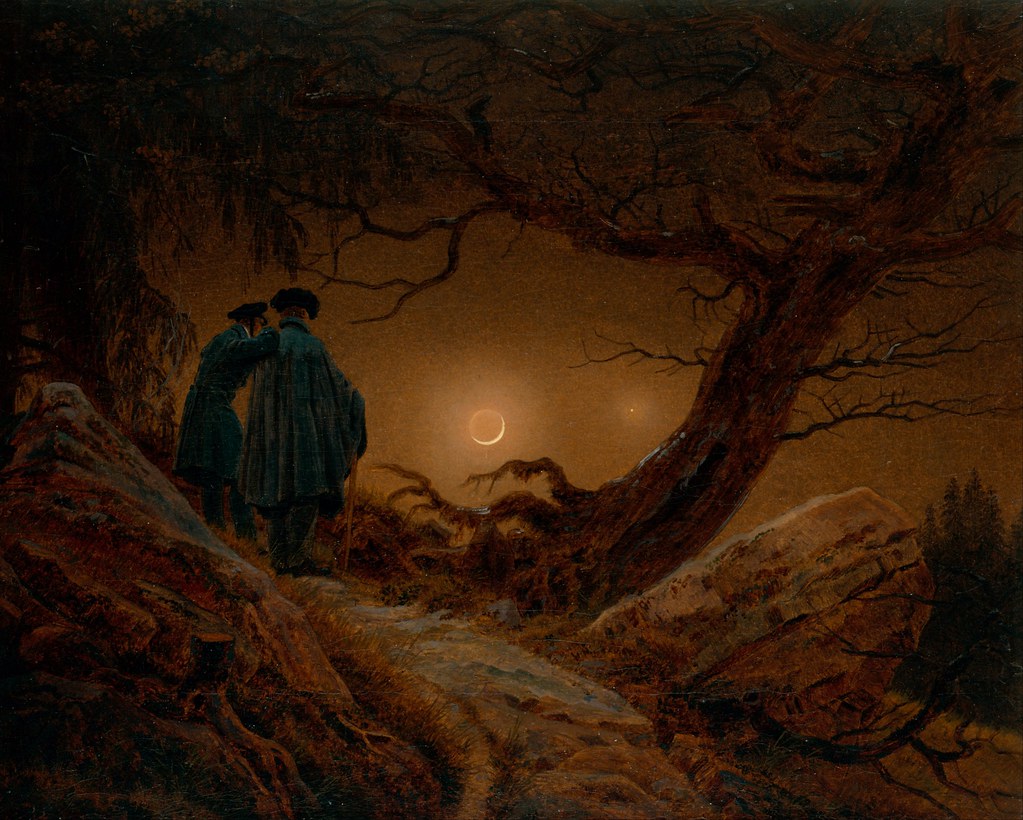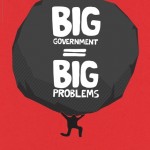My companion, an inexplicable pug-schipperke mix, gave me that I’m-ready-for-my-morning-constitutional look. I eagerly obliged, for we were relishing a rejuvenating Christmas Octave. I’d already enjoyed a quiet hour before the rousing of the household, and a crisp, earbud-free sunrise stroll with dog Pascal (named for Easter; not for Blaise, his sister Jacqueline, or any CGI chameleons) sounded perfect.
Yes, earbud-free. That time, at least. Spirit and flesh were in accord that week in embracing silence over audiobooks and music.
Are all the virtue signals cued up? Attachment to home and family. Check. Liturgical living. Check. Cute family dog. Check. Openness to the real world and real neighbors through putting away devices. Check.
But the silence did not cooperate. In opening us to ourselves, silence has a habit of revealing where our treasure truly lies.
“I’d fill my yard with chicks and turkeys and geese and ducks for the town to see and hear.”
So, what fair thing or deep truth did I—oblivious to the compelling bare trees and groggy houses full of good neighbors—contemplate during that silent, chilly Christmas Octave stroll, accompanied by my faithful liturgically denominated canine?
Money.
Gobs of it.
That well-worn mental path: what would I do if I won one of those Really Big Lotteries? You know, a Powerball jackpot north of $300 million, or something like that. To my small mind, that represents vaguely limitless financial resources. Maybe, with inflation, you need $700 million.
How unreal was I in considering the effects of taxation on net-winnings and the relative merits of electing a lump-sum vs. an annuity?
With Tevye, my heart sang “If I Were a Rich Man. . . .” Is this daydream always a trap? Perhaps it’s a lesson, for the way we direct it shows us what we value and how we’d like to imagine ourselves.
So, good Porcher-daydreamer that I am, my fantasy preserved a semblance of the “Place” part of the slogan, even if it lost any true “Limits” in its grasping for “Liberty.”
So what would our family do? As lottery winners, we’d be Stickers, not Boomers (never mind that we’d have made it to a local version of “Easy Street”). We would buy the obligatory horse farm, in the rough vicinity of the community in which we’ve been rooted for over a decade. (And we’d pay employees to keep it running whenever we didn’t feel like doing the work ourselves.) We might even become conscientious developers, planting more affordable housing and supporting other infrastructures needed for a “Strong Town.”
Assuring myself of how cautious we’d be of moral dangers, I worked out examples of our grandiose munificence. (Why not? There would still be many gobs left for us.) X and Y million each to various family members. Many Z millions to the Church (mainly locally, of course), to various charities (mainly locally, of course), and to my college. (Don’t ask me what strings I was going to attach to some of those gifts.) Would I retire from academic work? Probably not completely, if they’d still have me. How might I dictate the terms?
This is the temptation of Tolkien’s One Ring, which lets us imagine that, without limits, we would simply do the same kinds of good we want to do now, only bigger, better, and without toil. Of Tolkien’s Ring temptation fantasies, the one that most fascinates me is not that of Galadriel or Boromir but that of “Samwise the Strong.” Sam fancies becoming a great warrior general but also still a gardener who, after defeating Sauron, would make all Mordor into a “garden of flowers and trees.”
“This is a story about wishing.”
During my childhood and teenage years, I indulged in a more mundane version of such daydreams: catalogue circling. The most frequent objects of my coveting were contained in the pages of the mesmerizingly line-drawn Campmor catalog and the splashier Boy Scouts of America Official Catalogue. My father, my brother, and I would occasionally make a pilgrimage to Campmor’s brick-and-mortar store in Paramus, New Jersey from our Mid-Hudson-Valley home, but a much more frequent pleasure was dreaming through Campmor’s newsprint pages, pen in hand.
Amazon’s wish list is a revolution in catalogue circling, turning it from tactile and visual daydreaming into a precision tool of the attentional economy. If every click is food for the Algorithm, the wish list is a feast. Only rarely did my childish catalogue circling result in a purchase. The wish list, however, serves Amazon far better, because items are attainable, whether through my own adult resources or that of a potential gift-giver. My wish list, convenient to me as a shopping list and an advertisement to others of my desires, gives the Algorithm many more ways to whisper in my ear, to entice me to buy much more than what made it onto the list. The lack of friction between desire and fulfillment makes limitlessness seem plausible to the middle-class buyer. Who needs Tevye’s daydream if you can make much of it a reality?
And so my real habits belie my localist fantasies. The wish list tethers me to the convenience of clicking and free shipping. Despite occasional resolutions to sacrifice cost and convenience for the common good, only once or twice have I driven to my local bookstore, had the owner spend several minutes putting in an order, waited a week or two for a call, and driven back to pay a higher price. Small may be beautiful, but it’s often decidedly inconvenient. Amazon’s efficiencies play on our real limits of time and money to give us the perception of liberty. We typically get more, faster, for less, and we thereby hasten the local vendor’s demise.
Not that material wishes are evil. In Rumer Godden’s enchanting tale, the orphan Ivy wishes for something concrete, the doll Holly, a particular doll in a particular shop window in a particular English town. Not any doll, and not even primarily the doll. The doll is both an object of real love and a condensed symbol of Ivy’s starvation for a family’s unconditional love. Ivy desires not limitless money to buy limitless happiness. Safe to say, the wishes on my Amazon list are less exalted in meaning.
“I will pull down my barns, and build greater; and there will I bestow all my fruits and my goods.”
The Christmas Octave silence was not yet done with me. What arrested my mind’s lottery wanderings enough for me to notice them, I do not recall. (I’ll attribute it to Pascal, as good an instrument of providence as any canine, save Tobit’s dog.) What I do recall is that those daydreams led me on that frosty morn to ponder our ache for limitlessness.
Most of us try to fill the holes in our hearts with the good things of this world (camping gear and books come to mind). The catalogue and the wish list offer a strange satisfaction of imagining we might one day possess this or that. Although most of us ought to own many things, we dream and buy and hoard as if we had many mansions on earth.
Cost and physical storage space aside, most of us get about 4,000 weeks here, all told. Many of us, far fewer to start with and still fewer left. If a lottery eliminated my spending limits, I could read or use but a fraction of what has ever been on my Amazon wish list. Perhaps only a fraction of the books I already possess. (I do hope I’m wrong in telling students that we will drag up Mount Purgatory all the books we buy and leave unread.)
And yet, even afforded a life of leisure, few of us would really want “Time Enough at Last”; that is, books without the joy, sorrow, and decided inconvenience of human community.
“He was not large enough to bear such a burden.”
Apart from such minor details as clutter and mortality, the limitless command that we attribute to limitless wealth is danger enough to us. Tolkien’s Sam escaped his Ring temptation, for he had the “plain hobbit-sense” to know that “one small garden of a free gardener was all his need and due, not a garden swollen to a realm; his own hands to use, not the hands of others to command.”
While the Ring was evil in itself, impossible to use without corruption, even the lottery’s gobs are not. Those gobs, however, would attach me to them in love, and therein lies the root of all evil. Hard it is to be free gardeners with what small gardens we have, to discern how much (money and other material wealth) to strive to acquire. Harder still to steward what gifts (of money, goods, time, energy, and talent) have come to us. Seeing the ways I love both the things I have and the things I imagine having, I know that a garden swollen to a realm would destroy me.
“Incline my heart unto thy testimonies, and not to covetousness. O turn away mine eyes, lest they behold vanity; and quicken thou me in thy way.”
Is there anything to be done about our disordered wishing? About our middle-class appropriation of the poor milkman Tevye’s daydream? About our coveting of money, power, and a life free of work? More specifically, are there any practices that might help us to embrace limits more consistently?
Perhaps we need nothing more and nothing less than a continual return to the Gospel, via all the means already available to us. We could start with St. Paul’s reminder that “covetousness . . . is idolatry” (Col. 3:5).
But many of us need some specific countercultural guard rails in our attempts to “seek ye first the kingdom.” Given the efforts of the Algorithm’s masters to keep us addicted and to monetize our limitless desires, the obstacles are formidable. High ideals are a start, but they’re no match for my lottery daydreams, my Amazon wish list, and the ingenuity of the data harvesters seeking to win my heart and my credit card number. But one can try. Hence, I challenge myself to some rather mundane practices to bring me closer to reality and to gratitude for what I have:
- Delete the online wish lists. We may need shopping lists, but we don’t need to tell the Algorithm about them. Nor do we need to advertise our greed to our friends and family. The wish list increases the transactional element of gift-giving at the expense of the relational element. Better to receive fewer things I desire because a loved one made the effort to contemplate what might be best for me. Better to awkwardly dance around the question “What do you want for your birthday?” The ready-made wish list circumvents voice and in-person encounters, whereas discussion of a gift is an integral part of a real conversation. (Look, you may want to compromise on this for a wedding or baby registry, but try to select only what you “know to be useful, or believe to be beautiful.” And do so only if you know how much you become a goldmine at those turning points in life.)
- Until you’re ready to pay for an item, try to stay a little more anonymous when shopping online. Stay logged off and truly incognito until necessary. We can’t defeat the data harvesters, but we can slow them down. Try to undermine cookies and internet “fingerprinting.” Use tools such as privacy-centric search engines; a privacy-centric browser (or a full-featured browser with good privacy options) combined with a VPN; and even TOR (stronger privacy with slower connectivity and other hindrances). The reduced convenience, especially the vendor’s less informed memory of my desires, is a feature, not a bug. (If it’s feasible, pay for private, secure email, cloud storage, etc, rather than handing the Algorithm every thought you express and movement you make.)
- Go analog with task lists, reading lists, and shopping lists. The inconvenience is again a feature, not a bug. Digital tools store our desires limitlessly, with little friction. But everything we choose to write is an expenditure of time and energy. Every time you run out of space and have to rewrite, you consolidate and cull.
- Build systematic limits into these analog lists. For example, no more than 5 books on the To Be Read list, and no starting a new one before the current one is done. Or, less radical, a distinction between active items, with a small maximum, and an “In Queue” list. No moving items to “Active” status until a slot opens up. Separate less limited lists of ideas from very limited lists of commitments. (You can think of this as a personal implementation of a “pull” system, rather than a “push” system, addressed here and more fully here.)
- Brick-by-brick, embrace the freedom of tradeoffs. When I choose “this,” I am inherently foregoing many “thats.” Even should I finish “this,” there might be room for a new “this,” but there will always be a sea of foregone “thats.” Put another way, do fewer things.
- On books and other reading material, including the endless font of online essays, be willing to “read little”; that is, make choices. And don’t be afraid not to finish.
- Find ways to unplug just a little bit more, but always having planned what realistically might fill the void you usually fill with screens. Try a shutdown routine, not only of devices, but of your white-collar work in general.
- Try again the local bookshop. At least, access independent booksellers through sites like bookshop.org and biblio.com, rather than the Amazon marketplace.
- If your professional life can handle it, get a Google-Free phone, such as one of these (skip the versions that come with Waze).
- Accept that you often fail to resist your bad habits and the lure of the screen; you might still be better off than if you hadn’t tried at all.
Postlapsarian man has always found ways to covet limitlessly, and so it seems petty to blame the screen and Big Data for engaging with our wants. It also seems petty to reduce resisting our covetousness to a glorified list of “life hacks,” some of which are inaccessible to many people, given limits of money, time, energy, support, or expertise. Nevertheless, if our digital tools are designed to use us, to amplify and direct our desires, and to nudge our behavior in service of someone else’s profit regardless of human cost, then we may benefit from making concrete efforts to mitigate their harms.
“Except the LORD build the house, they labour in vain that build it: except the LORD keep the city, the watchman waketh but in vain.”
Are such efforts just a jumble of hobby horses, a defense mechanism against real growth in virtue?
I do not believe I woke in vain that morning. I sometimes practice some of what I’ve advocated above, and I hope I am more open to God and neighbor, precisely by engaging the uncomfortable gap between my ideals and my habits.
In the process of writing this essay, I finally convinced myself to delete the Amazon list. I miss the pleasure of instantly capturing and advertising my desires. I remain too much a child of the Machine and a devotee of the unreal.
Perhaps this is all to say that I needed and still need the silence, the silence that showed me where my treasure is, the silence that then invited me to something more. That earlier invitation and resolution, “Leave the earbuds,” made it possible.
Dog Pascal and I returned from our silent stroll to a house full of the good things of this world—useful, beautiful, and otherwise—and full of familial love. At least one of us two, I dare hope, returned with renewed thanksgiving and with a more loving embrace of the household’s inmates and of the Lord who builds the house.
Image Credit: Casper David Friedrich, “Two Men Contemplating the Moon” (1819-1820) via Flickr







1 comment
Scot Martin
Mr. Lane,
You’ve given us some good fodder here. Some of it painful, some of it relatively easy.
Thank you.
Comments are closed.